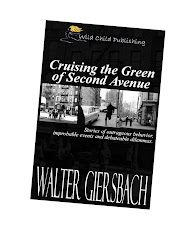I was stopped short by a reference in the New York Times Book Review (Mar 1, 2009)—Rich Cohen writing about the explorer Percy Fawcett. “He got the jones [sic, lower cased] for exploring, which back then you could catch like a fever.”
Where’d jones—or Jones—come from? The street corner or some nabob of neologism?
Inventing a new word lends itself to a kind of immortality. At least, if future generations have forgotten your name they’ll at least remember the word you invented.
Imagine being Herb Caen, columnist for the San Francisco Chronicle, who coined the word beatnik. For Mr. Caen, there were two shots at immortality (in addition to his wonderful columns): he also created the neologism hippie to describe the generation that followed the beatniks chronologically and in spirit.
John W. Tukey was another immortal, both for his neologisms and as an influential statistician. He created the word software. “Three decades before the founding of Microsoft,” the New York Times wrote in his obit July 28, 2000, “Mr. Tukey saw that ‘soft-ware,’ as he called it then [with a hyphen], was... ‘at least as important as the hardware of tubes, transistors, wires, tapes and the like.’” A dozen years earlier, while at Bell Laboratories, he coined the word bit, an abbreviation of binary digit.
Variety, the daily newspaper of show biz, is famous for creating a host of neologisms. They claim such commonplace terms as sex appeal, corny and sitcom. Their glossary of terms is listed at www.variety.com, and includes boffo, moppet, scripter and dozens of other insider terms.
“Kathryn Cason, the widow of management theorist Elliott Jacques and coiner of the phrase ‘mid-life crisis’ has been trying to [evaluate leadership potential],” reported the New Yorker in the May 10, 2004, issue. Did we know there was a mid-life crisis before Jacques invented it in his book Death and the Mid-Life Crisis? And, are we better for knowing now?
Back to jones. The Urban Dictionary (www.urbandictionary.com) defines it as a “desire for something that may be sought irrespective of the consequences.” The earliest definition appears in 2002. As a verb or noun, it can apply to humans, love, and is strongly associated with heroin. We may never know the origin of jones, but it’s another example of English delivering an enchanting, descriptive, organic approach to communicating as well as prescriptive school-marm ordination.
Friday, May 15, 2009
Subscribe to:
Post Comments (Atom)


No comments:
Post a Comment